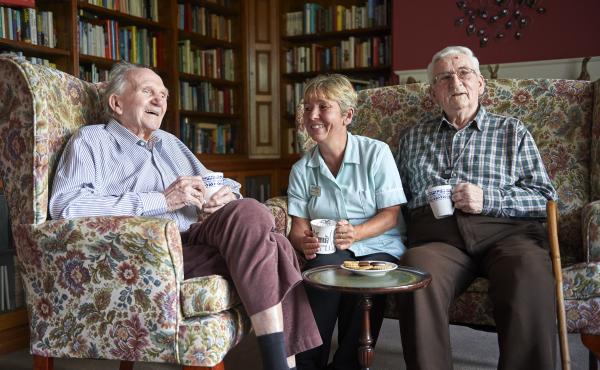At this time of year, it’s traditional for us to make New Year’s resolutions and I’m sure that the Prime Minister Boris Johnson is no different. On the back of a comprehensive electoral win and with a large enough majority to push through major changes in domestic policy, what better time to look ahead, make resolutions, and do what so many of us fail to – actually keep them.
A historic moment or business as usual?
When the Prime Minister committed to solving the social care crisis once and for all, it may have felt like a significant moment, but what he said was hardly new. ‘Solving the social care crisis’ has been familiar rhetoric for anyone with an interest in social care since the dawn of the millennium. It’s been a go-to line for any politician wishing to show they are aware of the major challenges facing the sector and of the deep upset and anger experienced by millions of people.
In fact, it was as far back as 1997 that Tony Blair said “I don't want [our children] brought up in a country where the only way pensioners can get long-term care is by selling their home.”
With a total of 12 white papers, green papers and consultations in the last 20 years and five missed deadlines for the latest Green Paper, you’d be forgiven for feeling a sense of déjà vu rather than hopeful.
Were the PM to fulfil his promise and use 2020 to deliver the reform millions are waiting for, that really would be historic.
So what might that reform look like?
Is cross party consensus already there?
Reflecting on the last few decades, there is unfortunately a lot to be negative about. The issue of social care has divided many people and caused election headaches for those on all sides of the chamber. Need I mention the “Death Tax” of 2010 and the “Dementia Tax” of 2017?
But when we look to the future I see a huge opportunity for the Prime Minister.
Finally, after years of debate and discussion there appears to be an emerging consensus around a set of principles which could form the framework for a new social care system. What’s more, this consensus is reflected in many of the solutions put forward by people at very different ends of the political spectrum and across the sector.
Whether it’s the House of Lords Economic Affairs Committee (that features former Chancellors from both the Conservative and Labour benches), Policy Exchange, the Centre for Policy Studies, the Care and Support Alliance or IPPR, uniting all these groups is a core underlying principle of free at the point of use. Whether the recommended policies are a universal care entitlement or free personal care, there’s a common thread that we need a system that works for everyone, regardless of wealth. We also see consensus around a core principle that any reform must involve pooling risk effectively, so that we can offer people clarity and reassurance – two feelings notably missing for anyone experiencing the current system.
Yes, there are also key differences to thrash out. What to do about hotel costs that can quickly build up in residential care? Should we be making just personal care, or all care, free? Is there a role for insurance?
Questions like these, however, become much more manageable if there is at least agreement on the core principles that should underpin system reform.
A bright future?
The Prime Minister says a consensus is central to the government’s approach. If he seizes this opportunity, then we may finally see radical change in social care.
If, on the other hand, this consensus remains hidden beneath the cold murky political haze that many have grown to resent, then it is indeed business as usual, and you can expect a similar blog from me same time next year.
All the pieces of the puzzle are there: a system that has been in crisis for decades, emerging consensus on the core principles that should underpin reform, a Prime Minister keen to make his mark and a thumping majority behind him.
Over to you, Prime Minister…
